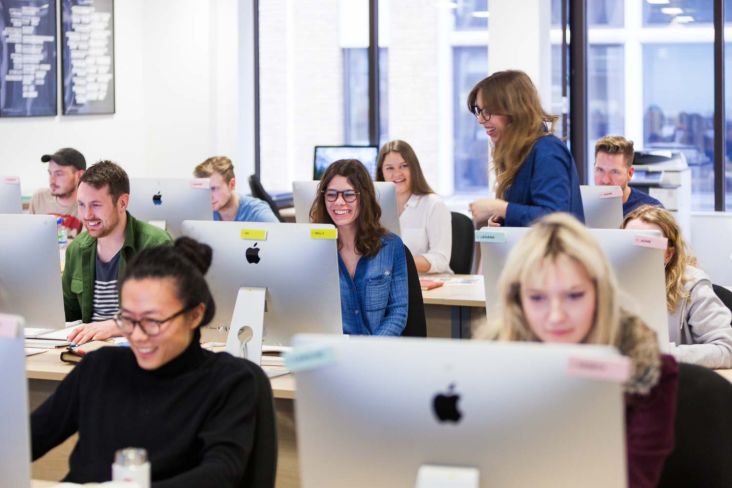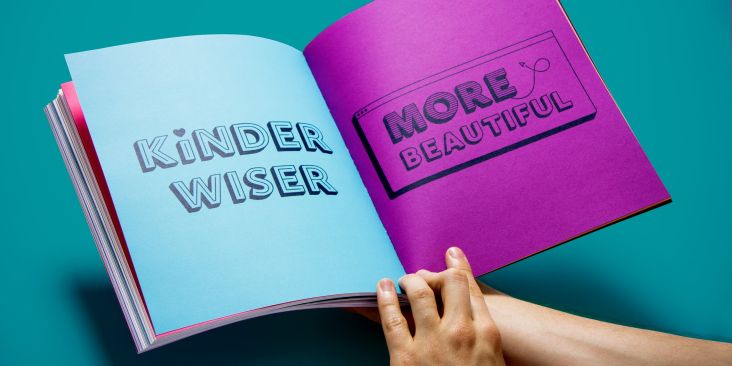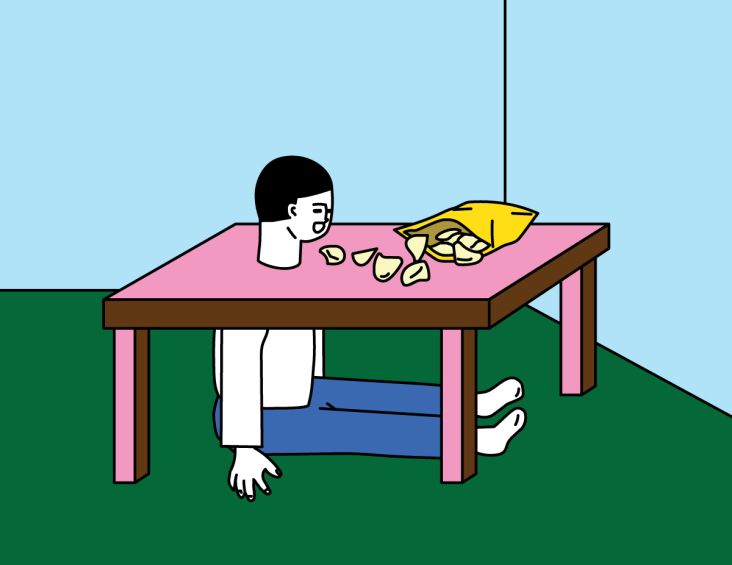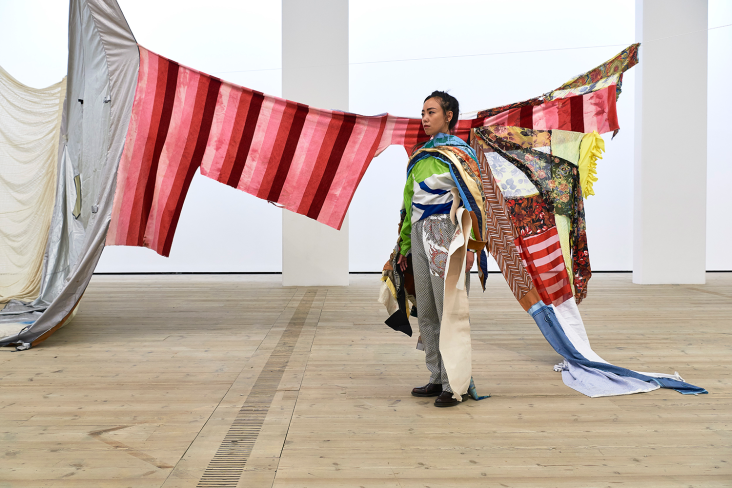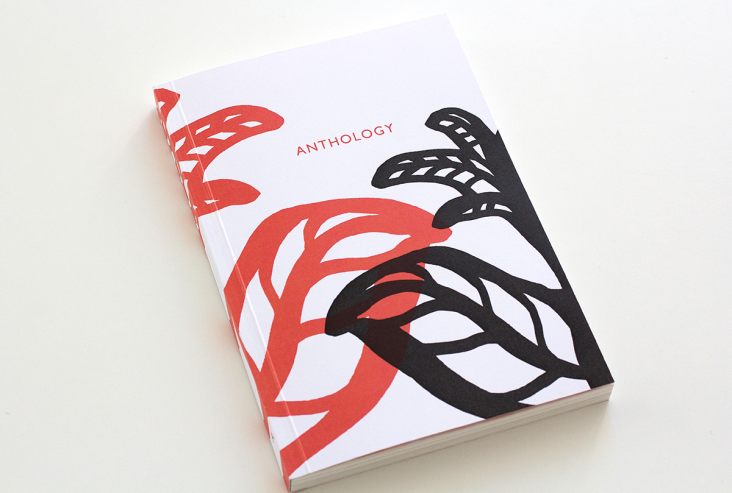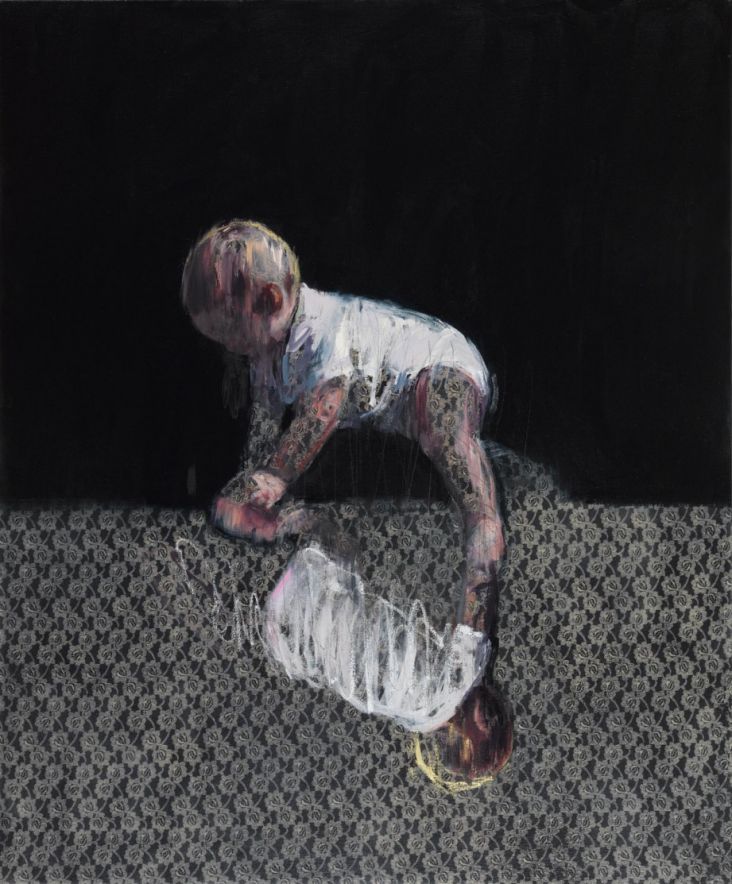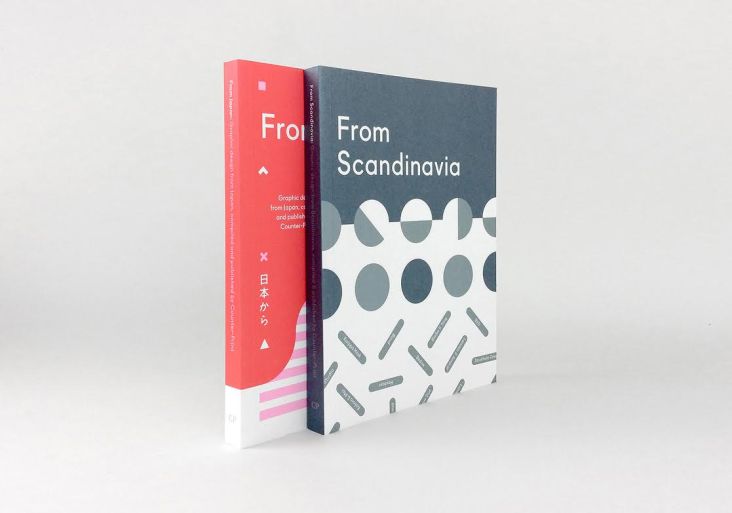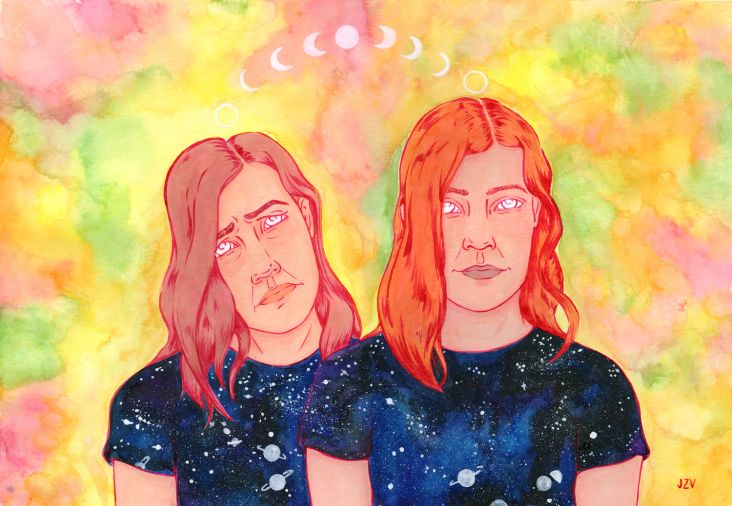Guy Moorhouse on working with Facebook, the changing tech industry and life as a freelancer
If you haven't heard of Guy Moorhouse, you'll most definitely have seen his work. The independent designer, developer and animator helped to design GOV.UK – the very website that many of us freelancers access all the time.
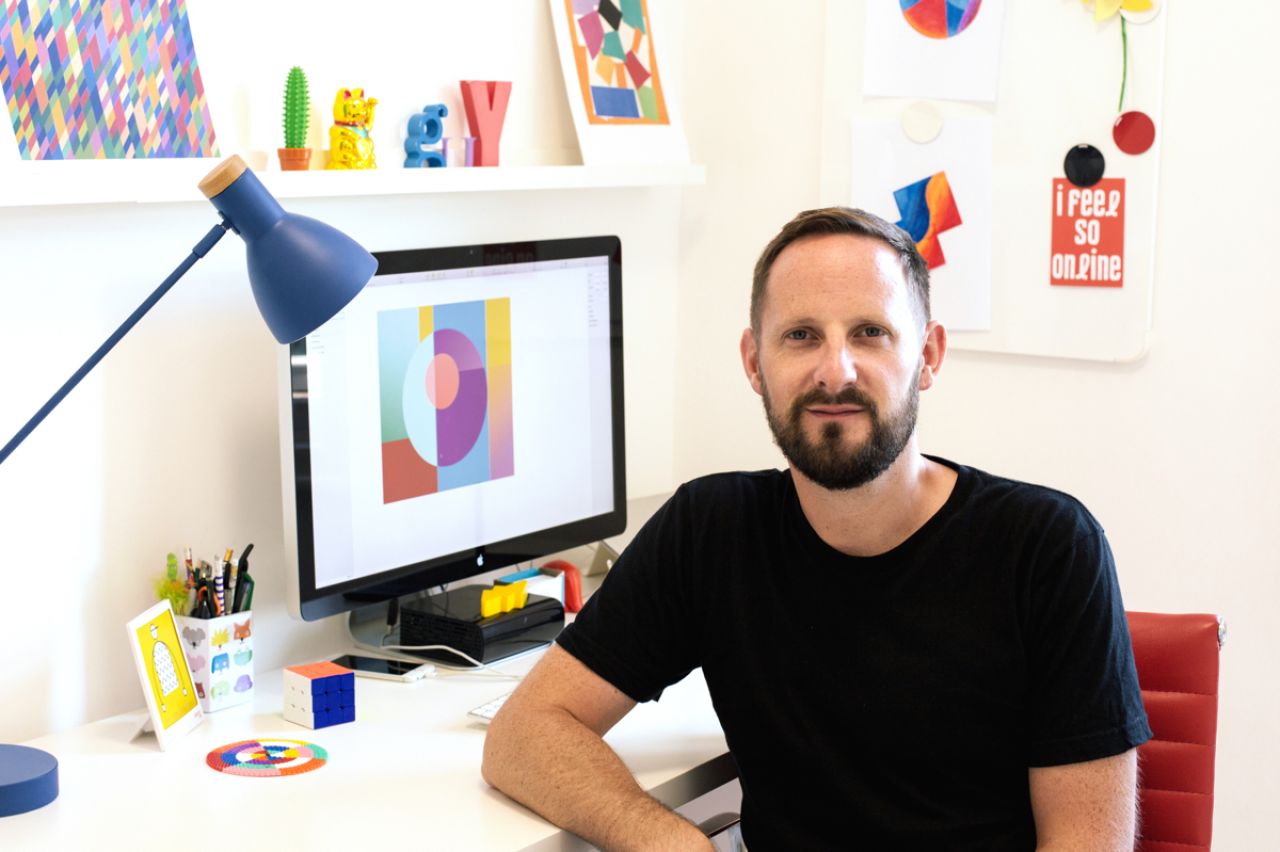
With 15 years experience under his belt, Guy has worked for various London agencies, including leading London design studio, Airside where he designed an in-flight entertainment system for Virgin Atlantic. In 2012, he went freelance and designed Malika Favre's website, along with illustration agency, Handsome Frank's. Just recently, he's been working with Facebook. If that wasn't enough, Guy continues to dish out his own projects – like his recent Animation Playground series.
How do you transform extremely complicated websites into simple, easy-to-navigate platforms? Just how do you land a contract with the world's largest social media network? And where on earth do you find the time for self-initiated projects? We luckily spoke to Guy about this and much more.
Tell us how you got started. Where did you study, and how has your career led to where you are now?
I've always been drawn to design and visual culture. And I spent a lot of time drawing as a kid. I was really into album artwork and video games and I loved messing around with computers — the ZX Spectrum was a pretty formative thing for me.
But I have no formal education in design. My secondary school was pretty traditional and design and art were neglected and low down the pecking order. So I did what I was best at — English. And that led to me doing a degree in Manchester.
Later I became kind of obsessed with the early internet. While most of the nascent web was clunky and badly designed there were pockets of real creativity and experimental work out there. That’s what excited me and gave me the hunger to want to learn to make things myself.
So I spent almost all my free time over the following years teaching myself to code and reading books on design. I kind of learnt by doing and setting myself challenges.
I realised the only way I could be hired to do stuff on the internet was if people could see I could do stuff on the internet. So I’ve always published work I create. Visibility is key, I think.
The real career turning point for me came years later when I got a job working at London studio, Airside. There, I finally got my design education.
You helped to design GOV.UK. It's a clean and simple website that functions beautifully. But it was far from simple to put together. Can you tell us more?
The creation of GOV.UK was something of a landmark moment in how government-owned digital products should be made and delivered to the public.
Thanks to people much smarter than me who laid the initial groundwork, we had the mandate to put users' needs ahead of those of business and government. And that meant stripping away anything that didn’t help users achieve what they need to. The apparent simplicity of the design is borne from that.
I was one of the first design hires at the Government Digital Service (GDS) which is responsible for GOV.UK. I was initially brought in to do illustration and iconography work, but I found my skills as a graphic designer and front-ender were put to much better use within the design team as we grew.
At GDS I learnt an awful lot about the importance of multidisciplinary collaboration and the power of research when building complex software like this. It was really where I became a ‘product designer’ rather than a ‘web designer’.
In terms of its benefit to real people, I'm pretty sure GOV.UK will remain the most important project I've worked on in my career.
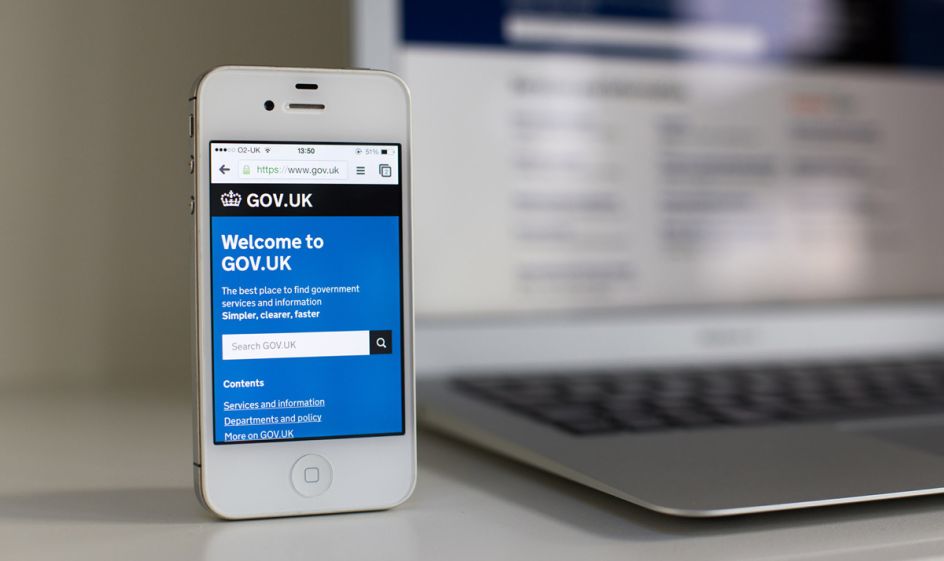
GOV.UK
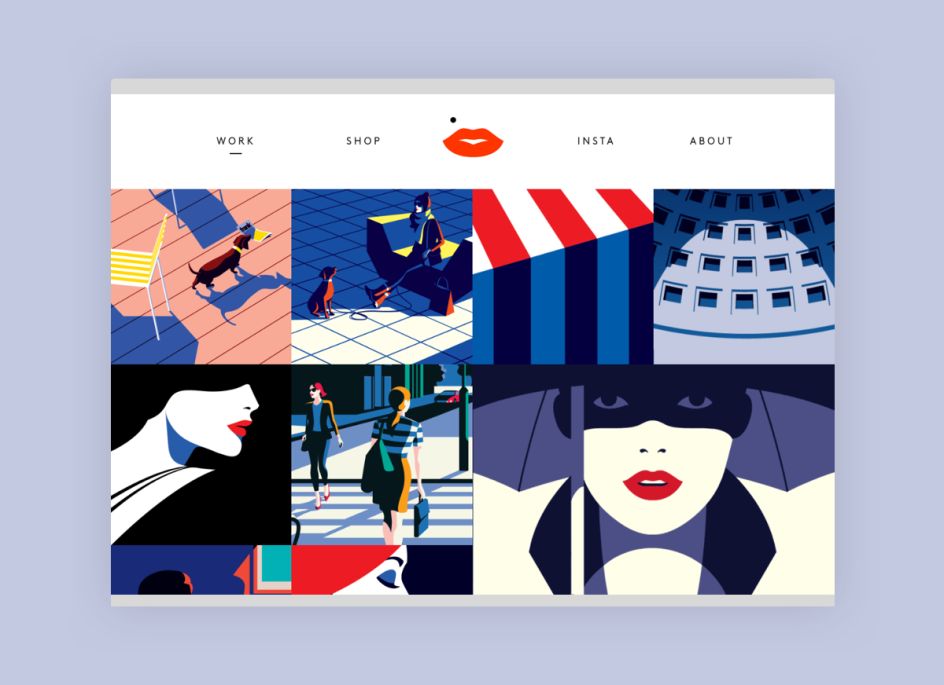
Malika Favre
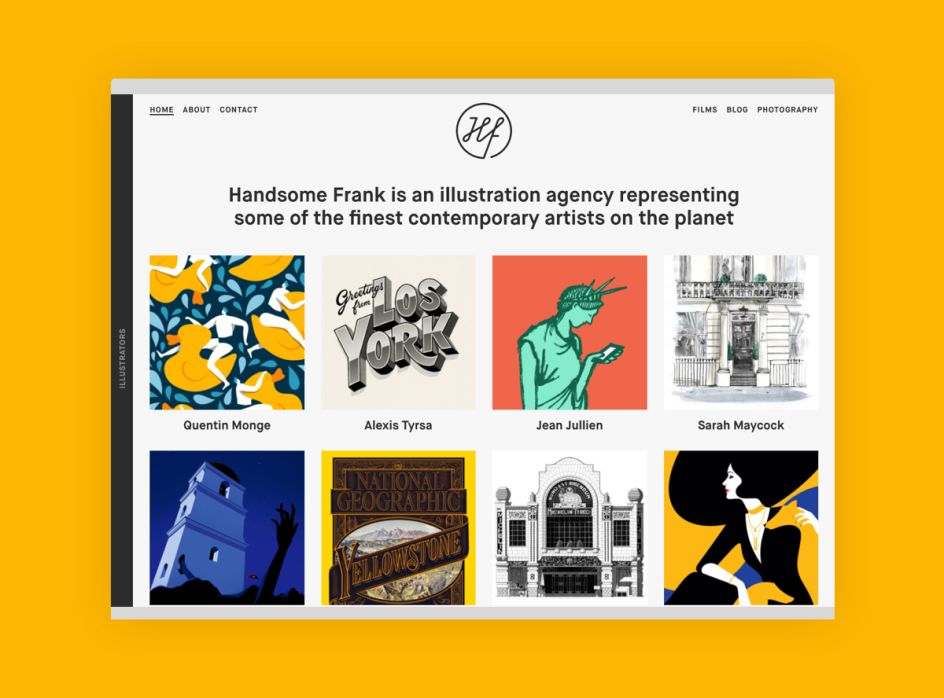
Handsome Frank
Did working for GDS meet your expectations?
Before working at GDS I guess my preconception was that it would be a bureaucratic and dry place to work. Especially after coming from the fun, colourful world of Airside.
But from the get-go, I was clearly wrong about that.
GDS had an air of anticipation and optimism and there were a lot of smart people in the building, bringing a wealth of experience from the likes of Google, the BBC, Channel 4, etc. So I knew we were onto something good.
We knew there was a lot to do, but the working environment was a very open one, and we felt empowered to get things done and make a difference.
There's definitely a lot to be said for taking a "startup" approach. Is it important that all brands and organisations, no matter how big or small, become agiler?
It’s relatively easy for small companies and organisations to be nimble and adapt to a changing market and customers’ needs.
But much less so for large companies, especially those working in outdated ways. And harder still if they are resistant to that change or even having their business model disrupted by it.
So yeah, I’d say it’s really important that brands and organisations structure themselves in a way that allows them to adapt and change direction quickly.
The problem comes when companies think that just using terms like ‘agile’ and tacking on a digital department will solve their problems. It won’t.
We’re in a post-digital age. The web and being connected is just part of the fabric of life. It’s a simple fact that companies that fail to adapt to that market will die and be usurped by those that do. So if they don’t know how to integrate digital properly into their business, they should get people in that do.
"I think culture is everything. If a company can establish a smart team with a diverse culture where openness and collaboration are encouraged, the rest will follow."
How do you go about understanding the user? Especially when there are 60 million people to consider?
The short answer to your question is through design research. Regular research with real people. This gives us a qualitative understanding from which to design from. Combining that with analytics gives us a quantitative picture — when we see how very large numbers of people actually use our product it gives the team a good signal on what direction to go in.
Research gives us the cues we need to make the right product – one that people can use to achieve the things they need to.
But I think to make a product that people really want to use, (especially in a commercial context) you’ve got to go further — you need to bring some level of delight or surprise that lifts their experience and makes it remarkable and memorable.
Collaboration definitely seems to be part of GOV.UK’s success, avoiding the old "conveyor belt" often adopted in the creative industries. Are you finding more agencies and brands are getting everyone to work together, all under one roof?
Yep, there’s a saying at GDS that I like — ‘The unit of delivery is the team’. And that’s exactly it, multidisciplinary teams are what’s needed to deliver software and digital products.
In my experience, all of the newer, digital-first companies I’ve worked for have definitely realised collaboration and overlapping roles is vital. It’s part of their DNA.
I think it comes down to information and knowledge flow within a business. Teams or disciplines that are in silos lead to people becoming blinkered and only caring about their own, immediate problems. This is dangerous, as things can change elsewhere without you realising. You need some level of visibility across the whole organisation.
Ultimately, I think culture is everything. If a company can establish a smart team with a diverse culture where openness and collaboration are encouraged, the rest will follow.
Moving on... You're currently working as a freelance product designer for Facebook. Can you tell us more?
I can’t talk much about the work, unfortunately, but I’m enjoying freelancing there and am learning a lot, working with some smart people. It’s interesting seeing how a company operates that’s undergone such massive growth since it began. It now has over two billion users which are pretty staggering!
Facebook, like GDS, recognises how important nurturing the internal culture is. It’s a very diverse and inclusive place where we all have a good deal of autonomy. This creates a good environment for us to be proactive and get shit done.
How did the hire come about?
As with most interesting work, it’s all about timing and opportunity. Previously Facebook’s recruiters had reached out to me when they were first setting up the London office, but I wasn’t free at that time. Earlier this year, however, I had availability and was on the lookout for a new contract, so the timing just worked.
My good friend and fellow ex-GDS colleague, Amy Whitney was on the team I’d be hired for if I got through the interview, so that was a really good incentive as we’ve worked really well together in the past.
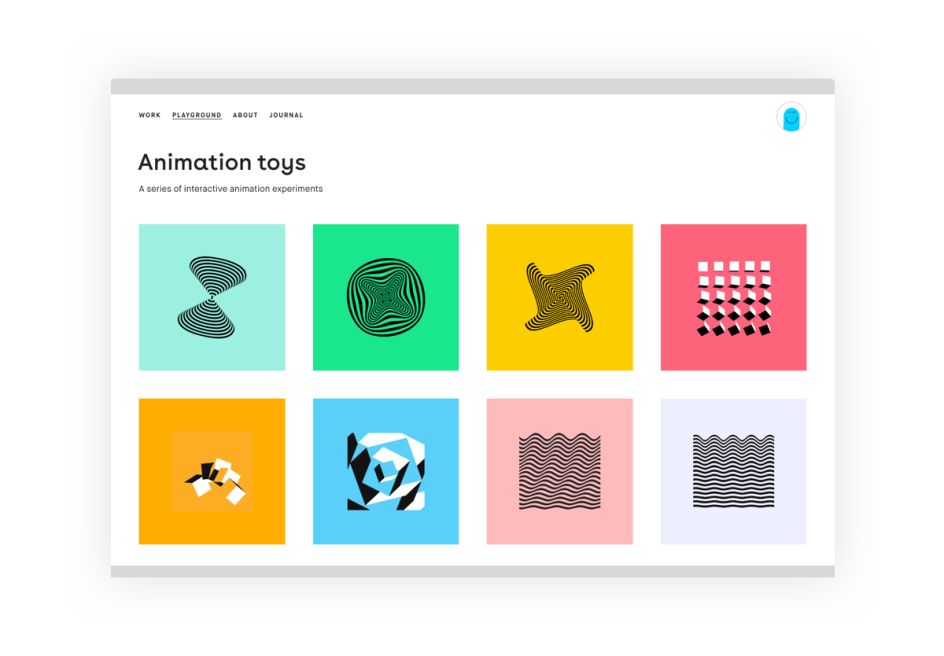
Playground
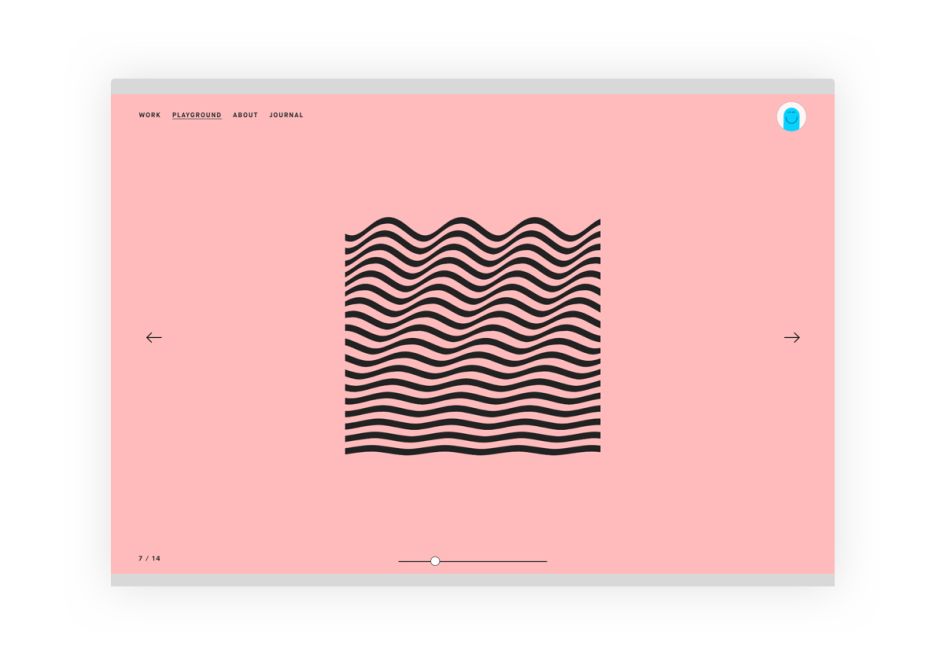
Playground
You went freelance in 2012. What are the key lessons you've learned since then?
I’ve written a bit about this on my blog but reflecting again now, I’d say freelancing is wonderful and hard and stressful and liberating.
It’s all these things at different times.
When it works, it’s the best — you have the freedom to meet who you like and seek out the work you want. But a lot of people don’t appreciate it can also be really hard.
Juggling jobs which may not come off when you’ve got to make ends meet and pay the bills can be tricky. As is concurrently working on varied, difficult projects and trying to keep everyone happy. I think it only suits some people.
I think it comes down to attitude. Are you generally a relaxed, positive person and prepared to work hard? Are you pretty self-motivated and self-aware? Then it’ll probably be a good fit for you.
Do you ever turn stuff down?
I’ve been lucky enough to work on some great projects and for that, I’m really thankful. But as an independent designer, you can never rest on your laurels or become complacent.
Sometimes things just don’t feel right on a prospective job. The way someone describes a project may betray some truth they’re hiding. I’ve really learned to trust my instincts over time — my bullshit detector is pretty strong these days!
And I don’t really work with agencies. They so often hire freelancers just to get them out of a scrape or hit a deadline at short notice. This is normally unrewarding work where you can be really low down the food chain.
I’ll generally try to meet senior people or founders and come in at that level where I can properly input and get involved early in the process. No matter how good your graphic design skills, you can’t fix a fundamentally flawed business.
Do you work from home? What's your work/life balance look like?
I worked from home for the 18 months preceding Facebook and that was pretty amazing — I’ve got a little studio space in my house that I’ve gradually developed as a nice place to work over the years.
I think it’s really important to create the right working environment and one that’s separate from other parts of where you live so you can have distinct modes. This is especially important for me, having a young family.
I loved working from home during that period as I would cycle most days and get to drop off and pick up my kids from school — important stuff for a healthy, full life.
But it’s a double-edged sword. I found working from home for a prolonged time, you can feel isolated too and the cabin fever sets in. It’s super important to make the effort to get out and meet people and talk.
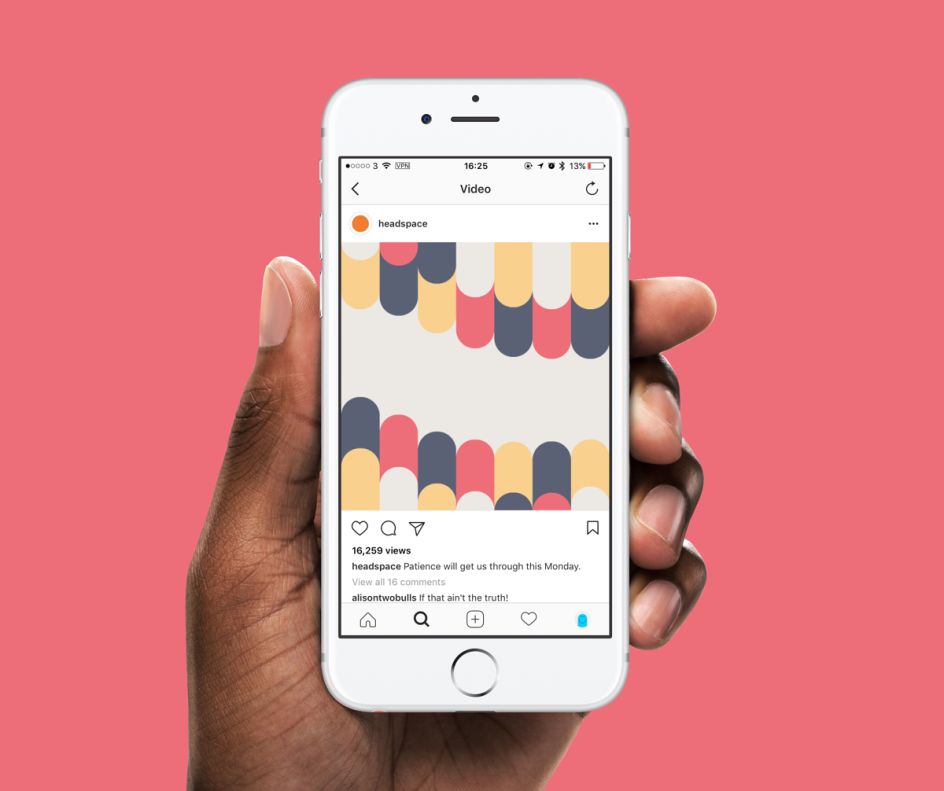
Headspace
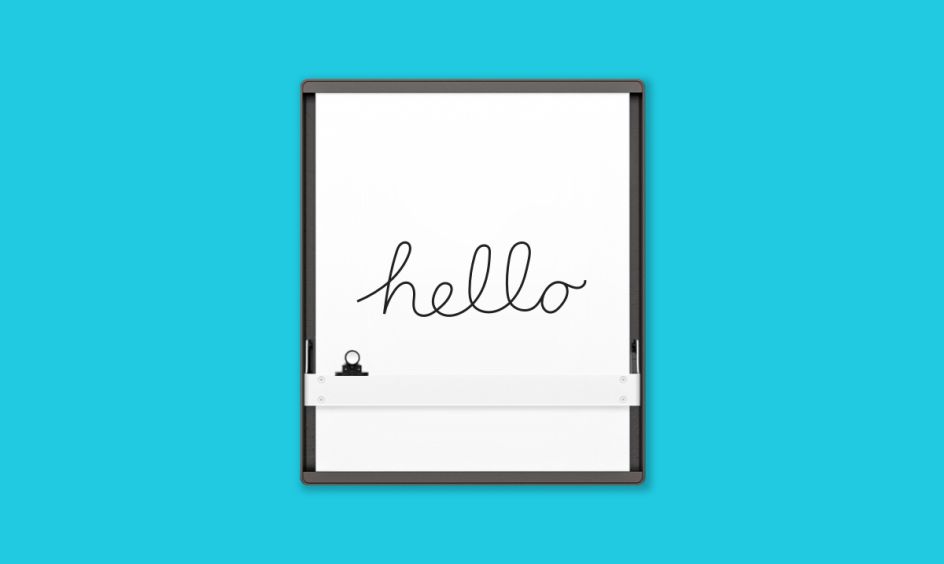
Joto
Anything exciting you're currently working on? Recent projects you're proud of?
I’ve just pushed a little playground section live on my site which features a series of interactive animations that visitors can control. That’s been a fun thing to make and kind of extended organically out of my Moving animation project.
Last year I worked on some nice projects, putting together a new site for independent artist, Dan Woodger and another for illustration agents, Handsome Frank. And of course I love working with big companies like Facebook as I am now.
It was also great getting to work closely with the small team making Joto — I did a kind of mix of work for them from strategy and hypothetical UI design to prototyping. It was wonderful to see their Kickstarter get fully backed in just a few days.
What's currently bugging you about the industry? What do you want to see change?
The tech industry in particular really needs to get its shit together with regards to sexism. It’s 2017 and there’s still so many examples of 'brogrammer' culture, it makes me cringe. The sooner there are more women at the helm in the industry the better in my opinion.
As a designer and developer, I kind of straddle both the design and tech industries and one thing that frustrates me in both camps is (often smart) people arguing on Twitter. Surely we all learned a long time ago it’s the wrong format for that. It’s all a bit pointless and circular.
Both industries also have a lot of dogma. Like 'you should do that this way not that way'. But the truth is the best way to do things depends on the stage of the business, the industry it's in, its target audience, timing and much more.
There's no one way to do things, no magic bullet.
Finally, if you could share advice to those thinking of going freelance, what would you say?
I think if you've been considering going independent and it’s something you keep thinking about, then you should probably go for it. Don’t allow yourself to regret not having tried. After all, if it doesn’t work out, you can go back to being an employee and there’s absolutely no shame in that.
But it's also important to consider timing and to do a bit of planning, and connecting with others to be ready. I wrote a bit about this a while back.
A Roman philosopher who's name escapes me for the moment had a good turn of phrase: 'Luck is what happens when preparation meets opportunity'.
I think that's very relevant to being independent. Work hard, prepare and keep yourself open to opportunities and the rest should follow.
To find out more about Guy Moorhouse, visit www.futurefabric.co.uk. Or you can follow him on Twitter or Instagram.

 for Creative Boom](https://www.creativeboom.com/upload/articles/06/063686a9a3b095b9b1f0e95df917ed4bd342be1b_732.jpg)


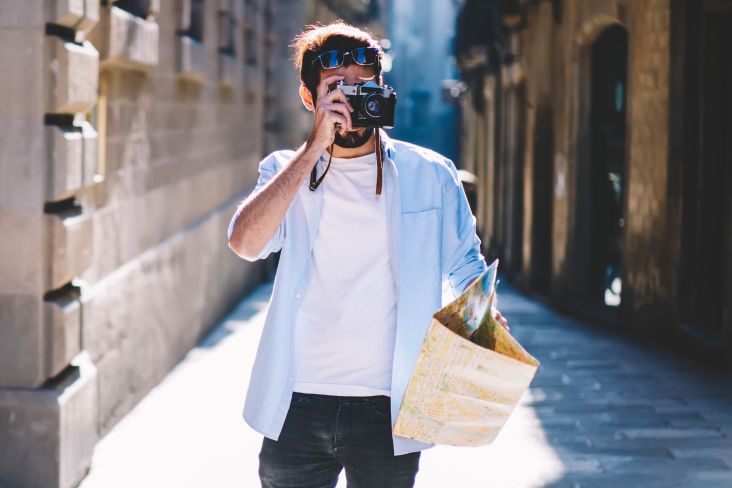
 using <a href="https://www.ohnotype.co/fonts/obviously" target="_blank">Obviously</a> by Oh No Type Co., Art Director, Brand & Creative—Spotify](https://www.creativeboom.com/upload/articles/6e/6ed31eddc26fa563f213fc76d6993dab9231ffe4_732.jpg)
 by Tüpokompanii](https://www.creativeboom.com/upload/articles/58/58684538770fb5b428dc1882f7a732f153500153_732.jpg)








